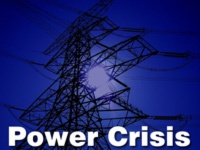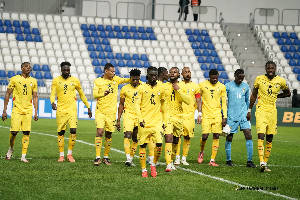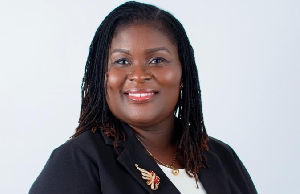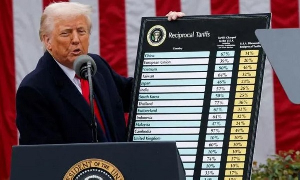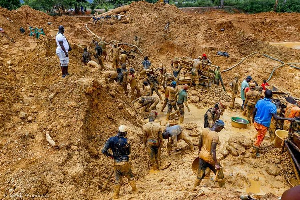Politicians or Bureaucrats
There is much evidence to suggest that the bureaucrats and their technical subordinates on one hand and government on the other know all too well what is to be done to move forward the power sector reform agenda. The system, however, appears to be stuck in the rut of high level inertia.Given the physical and technical aspects of the industry, where ability is more important than political agenda, the decisions and counsel of technical experts and civil servants are generally to be preferred to those of politicians. But if the bureaucrats repeatedly stonewall politicians in implementing repeated recommendations by industry experts and pricy consultants, we are left to question motives and the embedded interests. We are also left to wonder about the relative balance of power between elected politicians and unelected bureaucrats in matters that affect national security. The fact that electricity is a social and economic necessity and the building block of development means that it is government that must lead the pace of reform to serve the public’s long-term interest and improve social welfare. Whatever arm’s length that governments are perceived to be with the functioning of the power sector, it is government that is ultimately responsible to the voters for the performance of the industry. It is government that has the social responsibility to ensure predictable access to electricity in everyday life. It is ambiguities in what template to follow, in the relative balance of power between politicians and bureaucrats, in the assignment of social responsibility, and in policy-making in the power sector that have contributed in part to the current crisis.
Some Solutions
Nuclear Option: The government has just announced its desire to explore the nuclear option. Ghana is not the first to express such an interest. South Africa has nuclear power. Egypt and Nigeria are exploring this prospect. Despite the crisis provoked by Iran’s nuclear program, Ghana should not hesitate to explore the nuclear option under the rules of the IAEC as a long-term source of energy. Critics are right about the environmental consequences of the waste disposal. They are not right, however, about the safety of operation. The world has come a long way in technical knowledge about the safety of nuclear plants. Certainly, nuclear should remain on the table as one of the options.More Dams: Bui, Hemang, Juale and Pwalugu are four potential hydro sites in that order. In the heat of the moment, the decision to move forward on the Bui dam is laudable. Yet, it is worrisome because of the erratic trends in rainfall pattern and the rate of growth of the energy needs of the economy. We should ask if all the assumptions and forecasts of rainfall patterns and intensity, and the regularity of drought used by the engineers in the initial calculations and assessments of the Bui dam are still tenable. It shouldn’t surprise us if the assumptions made 20-30 years ago are not much to go by now. At the very least we need to confirm the basic weather assumptions and convince ourselves of the trends in the near future. The regularity, the severity, and the duration of droughts are credible warning signals to those who are single-minded about hydro. But both the dam and the nuclear options are at least 5 to 10 years away.
Other Options
Some other options are (1) thermal sources powered by light crude oil or natural gas, (2) solar energy, and (3) radical changes in public consciousness about energy use and conservation. These are by no means exclusive choices. Thermal for the moment is the only really viable alternative and a costly one if the much-awaited supply of natural gas is not coming as expected. Here government investment and tax incentives for the private sector are steps in the right direction. The unbundling of transmission from generation is an important, if not a necessary, first step.The high cost of thermal generated electricity requires radical changes in public awareness about energy use and conservation. It also requires immediate restructuring of ECG from a mundane public sector enterprise to a public-private enterprise with contract management. While this may seem an old-fashioned argument, we need some form of management arrangement that will strike a balance between providing service and managing cost. We are likely to see better management and rationing of resources, and better enforcement of collection to cut down on the non-payment or non-cash payment, especially by other public institutions.
What about solar? It may be quite sensible to explore the solar option as a medium-term strategy more seriously than the mere mention of it in the Vision 2020 and the Poverty Reduction Strategy. In fact, solar energy may provide a promising pathway to energy security for household use, street-lightening, and as complementary use by public institutions for lightening. It also holds substantial employment generating potential in the manufacturing of components, in installation and in maintenance. The instruments to pursue the development and use of solar energy are certainly within the reach of government policy if we put our minds to it.
For a start, government should provide tangible incentives to households who wish to install solar. While presently polycrystalline and monocrystalline panels are import duty exempt, the complementary deep cycle batteries to store power attract 10 percent import duty. Both panels and batteries are subject to VAT. The latter can be waived or dealt with through rebates to homeowners after confirmed installation. Tax exemptions on solar energy accessories should be immediate to all registered solar energy companies.
Certainly, government can do more for the long term. These should include setting up a national grant or endowment for the teaching and research into solar applications, especially for household use, and also to initiate scholarship schemes for students interested in pursuing solar technology and engineering.
The good news is that the technology is available already. The Chinese have advanced the solar technology to a higher level and here opportunities for technology transfer may be a step in the right direction. What is needed is a framework of incentives for the university and private sector partnership to lead the way in the engineering and production of solar accessories. This is an opportunity to consider a research park in solar engineering and technology.
Let public policy response to the current crisis be the final attack on the power sector. The focus ought to be on securing a reliable, stable supply of electricity to ensure development, affordability and a certain degree of social equity.

